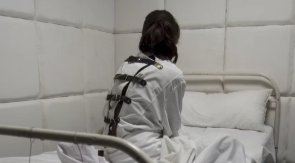🌟 New Year Offer 🌟
Celebrate 2025 with 30% OFF on all products! Use code: NEWYEAR2025. Hurry, offer ends soon!
The History of Mental Health Institutions and Related Care.
Explore the impact of major psychological reform, including deinstitutionalization and community-based care.
Identify how historical lessons current and future approaches mental health care.
File Size: 850.01 MB.
Format File: 16 MP4, 16 PDF.
Paul Stewart – From Asylums to Modern Psychiatry

Lesson content
-
Trace the evolution of psychological care from early asylums to modern mental health treatments.
-
Understand key historical shifts in psychological theory, diagnosis, and treatment methods.
-
Explore the impact of major psychological reform, including deinstitutionalization and community-based care.
-
Analyze ethical challenges and controversies in stimulating history.
-
Examine the role of medications, therapy, and neuroscience in shaping modern psychiatry.
-
Identify how historical lessons current and future approaches mental health care.
Describe
The treatment of mental illness has involved a profound transformation over the centuries. From the harsh conditions of early asylums to the rise of modern psychiatric care, this course explores the historical milestones that shaped mental health treatment as we know it today.
We begin by examining the origins of psychological institutions, including their intended purposes and the often inhumane conditions within. As we move through the 19th and 20th centuries, we uncover pivotal changes, such as the moral treatment movement, advancements in psychoanalysis, and the introduction of psychological medications that revolutionized care.
The course also delves into the deinstitutionalization movement and its unintended consequences, including challenges in community-based mental health services. We will explore how neuroscience, psychotherapy, and public policy continue to evolve to improve psychological care.
Additionally, we will discuss the shifting perceptions of mental illness and the role of advocacy in shaping policies. How have societal attitudes influenced spiritual practices? What can history teach us about reducing stigma and improving access to care? Through real-world case studies, we will analyze the successes and failures of past mental health initiatives.
By the end of this course, you’ll have a comprehensive understanding of how psychodynamic care developed, the key figures and theories that influence it, and the lessons history offers for the future of mental health treatment. Whether you are a student, professional, or mental health advocate, this course will provide valuable insights into the past, present, and future of psychiatry.
Who this course is for:
- This course is designed for anyone interested in the history and evolution of mental health care, including psychology and psychiatry students, mental health professionals, and general learners passionate about mental health advocacy. Whether you’re a clinician seeking historical context, a student exploring psychological history, or simply curious about how mental health treatment has transformed over time, this course offers engaging, accessible content that will deepen your understanding. No prior knowledge of psychiatry is required.
Lecturer
Paul Stewart
-
4.7 instructor rating
-
4883 reviews
-
18377 students
-
7 courses
Dr. Stewart has graduate degrees in education, psychology, nursing, and public health. He has taught in higher education for 15+ years and consulted for projects in countries like Afghanistan, Palestine, Yemen, Australia, and New Zealand. He currently lives in the United States and enjoys studying languages. Helping students to learn remains his pride.
Course Features
- Lectures 0
- Quizzes 0
- Duration 10 weeks
- Skill level All levels
- Language English
- Students 49
- Assessments Yes
